It was an interesting topic that jumped into the news cycle over the weekend. Kamala Harris, the presumptive Democratic nominee, trolled Donald Trump on his Truth Social network by posting a picture of a massive crowd that was awaiting her at the Detroit, Michigan airport last week.
Trump, who frequently boasts about the MAGA crowds he typically draws, responded with allegations the photo had been digitally altered.
Other than a possible bruised ego, Trump's unusual claim can be traced to a Harris-Walz photo of the massive airport crowd (pictured at right) that many said looks strange. But the rally did draw a huge crowd and numerous media outlets jumped on Trump's claim of a "fake crowd."
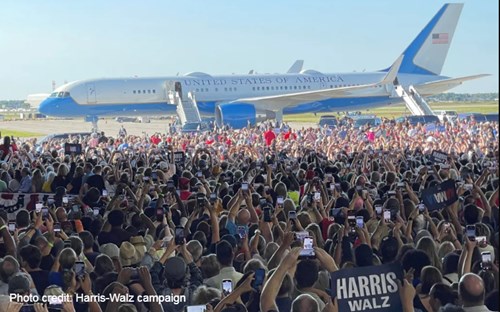 “This is just the reality we live in now, but with that being said, the official (Harris) channel doesn't appear to have actually published anything with an egregious deep fake,” Jake Denton, a tech policy research associate for The Heritage Foundation, said on American Family Radio Monday.
“This is just the reality we live in now, but with that being said, the official (Harris) channel doesn't appear to have actually published anything with an egregious deep fake,” Jake Denton, a tech policy research associate for The Heritage Foundation, said on American Family Radio Monday.
Market analysts project that $16 billion will be spent on political advertising in 2024.
Somewhere between 25-35% of political ad spending is expected to be spent on “smart TV” platforms such as Netflix, Hulu, Amazon Prime and more.
Another 10-15% is expected to be spent on other digital platforms such as social media.
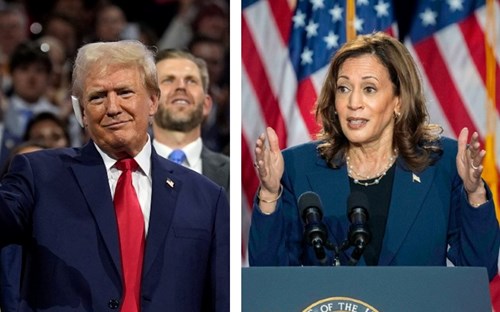 Digital advertising is “huge" and "makes or breaks a race,” Denton told show host Jenna Ellis.
Digital advertising is “huge" and "makes or breaks a race,” Denton told show host Jenna Ellis.
Denton was making his remarks at about at about the same time on Monday that Trump posted to X, formerly Twitter, after about a year of being absent from the social media site.
Trump likely did so in preparation for a widely-anticipated interview with Elon Musk, the billionaire and X owner who has endorsed Trump.
With this different form of communication comes legitimate questions of authenticity.
“The instinct to question the media files coming out of the official channels on both sides is very good,” Denton said. “You should be questioning whether a photo is real or fake. This is just the reality we live in now.”
The other reality is that in the world of digital advertising, Democrats have a distinct advantage.
The remaking of Twitter
Musk’s purchase of Twitter – since renamed X – has given free speech advocates a dog in the fight, but two of the tech realm’s biggest players – Google and Meta – are decidedly leftist in their politics.
Last week a federal judge ruled that Google’s market dominance constitutes a monopoly on internet searches and search advertising and that Google had engaged in “exclusionary conduct” to maintain its monopoly.
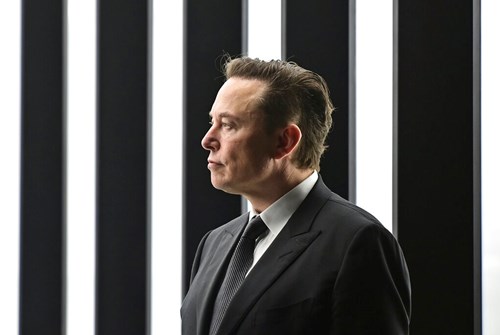 In late July Sen. Roger Marshall (R-Kansas) announced that he would open an investigation into Google’s manipulation of search results to dance around inquiries of the assassination attempt on Trump.
In late July Sen. Roger Marshall (R-Kansas) announced that he would open an investigation into Google’s manipulation of search results to dance around inquiries of the assassination attempt on Trump.
In a letter to Google CDO Sundar Pichai, Marshall said omitting suggestions related to the July 13 shooting was another “example of censorship against conservative voices” and showed “willful discrimination against President Trump and users of your search engine.”
Mark Zuckerberg, CEO of Meta, which operates Facebook, Instagram and WhatsApp, was the subject of a House committee hearing in February over his “Zuckerbucks." Those grants, totaling over $400 million, were funded primarily by Zuckerberg with the stated intent of helping election offices with COVID-19 related expenses in the 2020 election.
Conservatives raised eyebrows immediately.
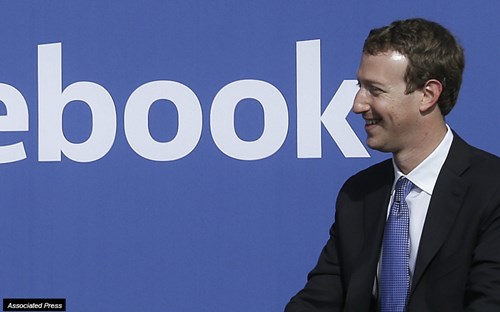 In the hearing, Rep. Barry Loudermilk (R-Georgia) noted that almost 9% of all Zuckerbucks awarded went to the state of Georgia which includes only 3% of the U.S. population.
In the hearing, Rep. Barry Loudermilk (R-Georgia) noted that almost 9% of all Zuckerbucks awarded went to the state of Georgia which includes only 3% of the U.S. population.
Joe Biden won Georgia in 2020, making it the first time the state voted Democratic since 1992.
“There’s no question the Google monopoly over search has had a dramatic impact on the political side of things. Google and Meta also essentially have a duopoly over the advertising markets. Meta, they do the same exact funny business of suppressing search results. They suppress ads. This ruling inches closer. It’s not necessarily a foregone conclusion that those things will be broken up, but we’re inching close,” Denton said.
There are some bills in Congress, one of them the America Act by Sen. Mike Lee (R-Utah), that also address advertising and internet competition, Denton said.
“There’s like a conscious shift in the public conversation. It’s clear people understand these platforms and the consequences of a monopoly here,” Denton said.
Is Facebook becoming neutral ground?
Zuckerberg in July complimented Trump’s reaction to his assassination attempt, his fist-shaking defiance, and said he’s working to response to user’s calls to make Facebook less political.
“The main thing that I hear from people is that they actually want to see less political content on our services because they come to our services to connect with people,” Zuckerberg said in a Bloomberg interview.
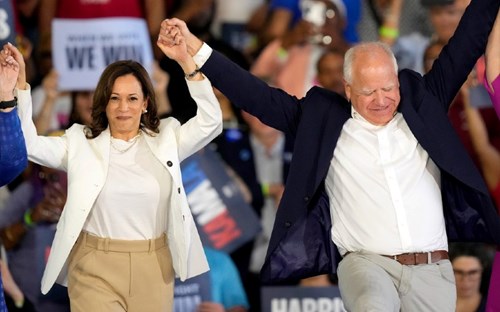 Facebook has already begun to decrease the amount of its political content, he said.
Facebook has already begun to decrease the amount of its political content, he said.
While steps are being made, it’s not likely that a competitive playing field will arrive in this election cycle.
Trump can still get in his licks because of the grass roots nature of social media, Denton said.
“That’s the secret ingredient for a digital campaign. If you don’t have these large public profiles backing you, it’s still really easy for major stories to just flip through the algorithms,” he said.
He used the military service record of Minnesota Gov. Tim Walz, Kamala Harris’ running mate, as a recent example.
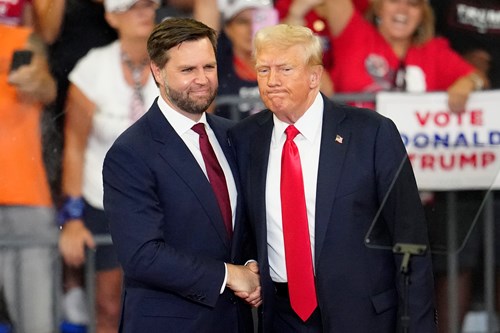 Walz, in 2018 comments regarding gun control, said, “We can make sure that those weapons of war, that I carried in war, is the only place where those weapons are at.”
Walz, in 2018 comments regarding gun control, said, “We can make sure that those weapons of war, that I carried in war, is the only place where those weapons are at.”
The Harris campaign has said Walz “misspoke,” but his service record has come under intense scrutiny from vice presidential candidate J.D. Walsh and others.
The Minnesota National Guard has also disputed Walz’ claims about his record.
“The Tim Walz stolen valor controversies are being pushed almost entirely through large influencer accounts that get picked up by the smaller ones, and suddenly you have a story that's dominating the algorithm. If you don’t have that, these things kind of slip away,” Denton said.
X, it’s where the Right hangs out
However, many conservatives have gotten too comfortable with Musk’s X platform.
“It's where all the conservatives are, but when you look at Tik Tok and these other platforms, the Left has a huge advantage with these influencers, and they're not traditional political commentators. They might be beauty influencers or travel bloggers that are being represented by traditional Hollywood talent agencies who put them into the political conversation, and that really resonates with non-traditional voters, Gen Z voters,” Denton said.







